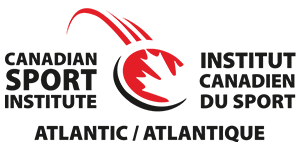At the Canadian Sport Institute Atlantic we strive to be a leader in our community that contributes to a positive culture in sport. We are committed to being an organization where diversity is not only valued but is celebrated. At CSI-Atlantic, inclusion and respect are at the core of our values, and we all contribute towards creating an inclusive environment. We commit to doing the work required so that everyone who walks through our doors feels a sense of belonging. It is our diverse backgrounds, perspectives and experiences that fuel our innovation and enhance our ability to build strong relationships with all our partners.
Whether new to Canada or an individual from an Indigenous community across the region, everyone has the right to participate in sport in the way they choose and be their authentic self.
Coaches are integral to fostering inclusive environments, with their primary responsibility being the safety of all athletes. In 2022, our CSI-Atlantic coaching team conducted a survey among Nova Scotia coaches. Eighty-two per cent indicated that they either do not possess or have limited tools at their disposal to create an inclusive environment for everyone who may show up at their sport program. As an organization that strives to be a leader in our community in contributing to a positive culture in sport, we must do better and work with coaches so that they have the tools they need to make sport safe, inclusive, and fun for all.
That’s why this page exists. Here you will find numerous tools and resources to help not only show “what not to do” but what you can do to ensure an awesome environment for everyone!

EDI 101
Below are some definitions to start the learning journey for coaches and sport leaders encountering these concepts for the first time. It's crucial to understand that equity, diversity, and inclusion (EDI) are fundamental principles that can transform the landscape of sports for the better. These concepts are not only about fairness but also about enhancing performance, building stronger teams, and creating a welcoming sports community where everyone can thrive. As sports leaders and coaches, embracing EDI principles can lead to a more inclusive, competitive, and morally upright sporting environment for all participants.
Equity:
Equity refers to the fair treatment, access, and opportunity for all individuals, regardless of their race, gender, sexual orientation, disability, or other characteristics. It aims to address historical and systemic inequalities to ensure everyone has an equal chance to succeed.
Diversity:
Diversity is the practice or quality of including or involving people from a range of different social and ethnic backgrounds and of different genders, sexual orientations, etc.
Inclusion:
The effort and practices in which different groups or individuals having different backgrounds are culturally and socially accepted and welcomed. It goes beyond simply having diverse representation and focuses on fostering a sense of belonging for everyone.
Equity, Diversity, and Inclusion (EDI) Initiatives:
These are organized efforts within organizations and communities to promote equity, diversity, and inclusion through policies, programs, training, and cultural shifts.
Bias:
Bias refers to preconceived opinions or attitudes that can influence one's perception and decision-making. While there are many different types of biases. “Explicit bias” refers to the attitudes and beliefs we have about a person or group on a conscious level. “Implicit bias” is subconscious bias that affects our judgments and actions without us being aware of it.
Stereotype:
A stereotype is a generalized and often oversimplified belief or idea about a particular group of people. Stereotypes can be harmful and perpetuate bias and discrimination.
Microaggressions:
Microaggressions are subtle, often unintentional, everyday actions or comments that marginalize or demean individuals based on their identity. They can be verbal, nonverbal, or environmental.
Privilege:
Privilege refers to unearned advantages or benefits that individuals may receive due to their social identity, such as race, gender, or socioeconomic status. While there’s no need to apologize for your own privilege, it’s important to recognize and acknowledge your privileges to provide an open and inclusive environment for your stakeholders.
Intersectionality:
A concept defined by Kimberlé Crenshaw back in the late 1980s, intersectionality recognizes that individuals have multiple social identities (e.g., race, gender, sexual orientation) that intersect and interact, leading to unique experiences of discrimination and privilege.
Allyship:
Allyship involves individuals, often from privileged groups, actively supporting and advocating for marginalized or underrepresented groups to promote equity and inclusion.
2SLGBTQ+:
An inclusive acronym that encompasses a variety of sexual orientations, gender identities, and gender expressions. It stands for "Two-Spirit, Lesbian, Gay, Bisexual, Transgender, Queer/Questioning, and additional identities.


